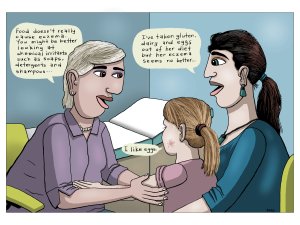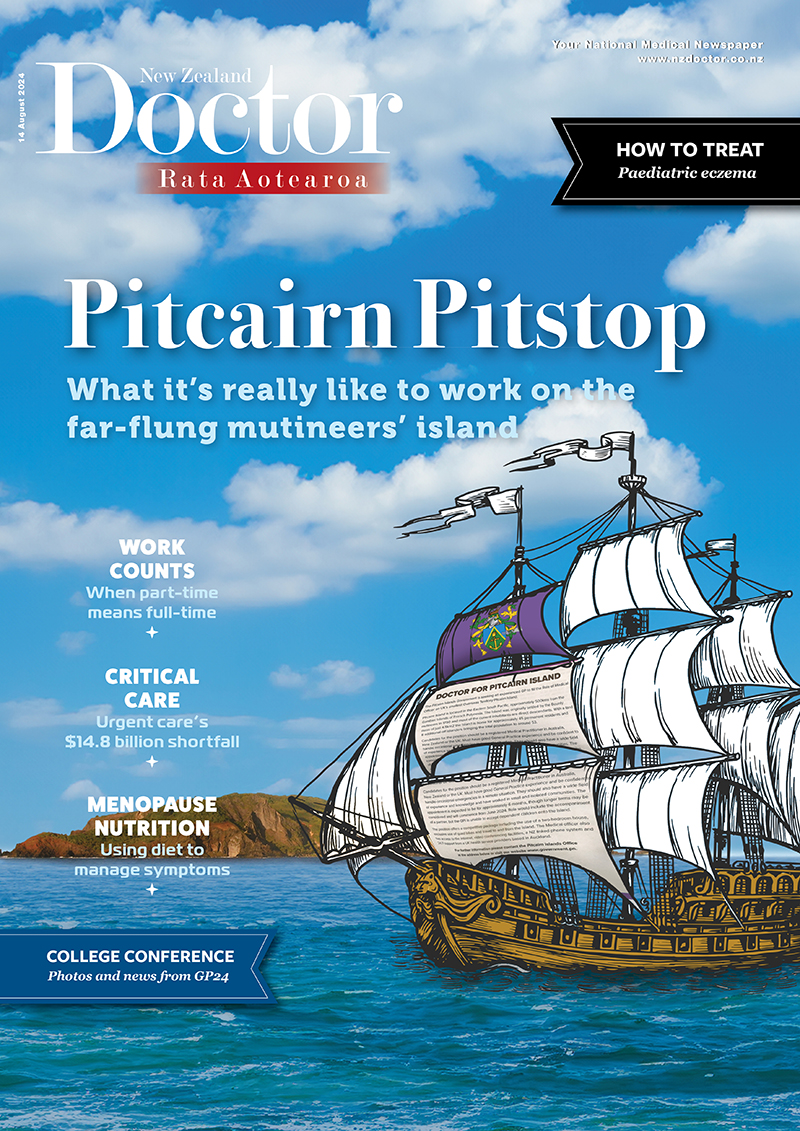Specialist GP Nikki Vadgama provides some tips to make your next paediatric eczema consult easier. She includes a review of new guidelines, resources, websites and medications for paediatric eczema management
Colleges caution against unnecessary tests and treatments – new recommendations released
Colleges caution against unnecessary tests and treatments – new recommendations released

Medical colleges are cautioning against the unnecessary use of test and treatments such as x-rays, scans and population screening. There is also a focus on the way health risks, harms and benefits should be communicated to consumers.
The recommendations are part of the Choosing Wisely campaign, which encourages consumers to ask health professionals four questions:
- Do I really need to have this test, treatment or procedure?
- What are the risks?
- Are there simpler, safer options?
- What happens if I do nothing?
Health professionals are encouraged to discuss the risks and benefits of tests, treatments and procedures with consumers, so an informed choice can be made.
New recommendations are being released today from:
- New Zealand College of Midwives
- New Zealand College of Public Health Medicine
- New Zealand Committee Royal Australian and New Zealand College of Obstetricians and Gynaecologists
- New Zealand Rheumatology Association
- Australasian Faculty of Occupational and Environmental Medicine
- Australia and New Zealand Child Neurology Society.
Choosing Wisely chair Dr Derek Sherwood says more isn’t always better when it comes to medical tests, treatments and procedures.
“Unnecessary interventions are stressful, and potentially expose patients to harm, leading to more testing to investigate false positives.”
The New Zealand College of Midwives and the New Zealand Committee Royal Australian and New Zealand College of Obstetricians and Gynaecologists both caution against too many ultrasound scans in healthy pregnant women. The College of Midwives also says it is not necessary to continuously monitor a baby’s heart rate during normal labour, and that the umbilical cord should not be cut straight away. Unless the baby requires resuscitation at birth, cord clamping should be delayed for at least three minutes or until the cord has stopped pulsating (whichever is longer).
The New Zealand College of Public Health Medicine and the New Zealand Committee Royal Australian and New Zealand College of Obstetricians and Gynaecologists both say that population screening, unless strict criteria are met, can do more harm than good. Population screening for ovarian cancer for example, is not recommended according to College of Obstetrics and Gynecology. The New Zealand Rheumatology Association also cautions against screening patients at low risk of osteoporosis with bone density scanning more frequently than every five years.
When communicating health risks, harms and benefits, the New Zealand College of Public Health Medicine recommends that absolute risk is used ahead of relative risk. For example, a treatment that gives a relative reduction in deaths of 50 percent can sound misleadingly good, but the absolute risk of dying from a condition may only decrease by a very small amount.
Many New Zealanders are undergoing tests such as x-rays and CT scans that they do not need, and these can be harmful, for example, because they increase a person’s risk of cancer. The Australasian Faculty of Occupational and Environmental Medicine advises against any imaging for low back pain. CT scans are also not needed to investigate first-time headache or fainting in children, according to the Australia and New Zealand Child Neurology Society.
Choosing Wisely is run by the Council of Medical Colleges, with partners Consumer NZ and the Health Quality & Safety Commission. Its sponsors are Southern Cross Health Society, PHARMAC and Pacific Radiology. It has wide health sector support.
Find out more at www.choosingwisely.org.nz, or contact Choosing Wisely facilitator Sue Ineson on Sue.Ineson@cmc.org.nz, 021 608 039.




